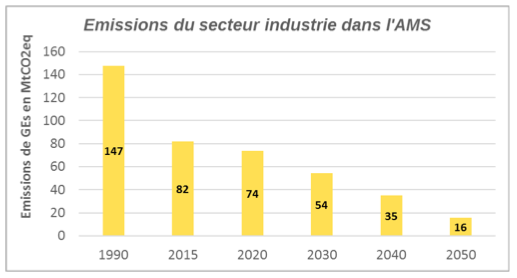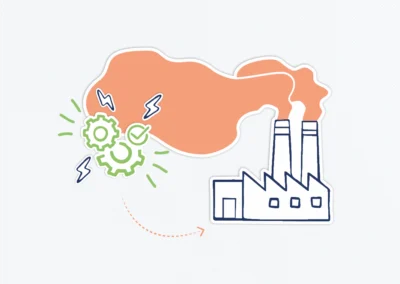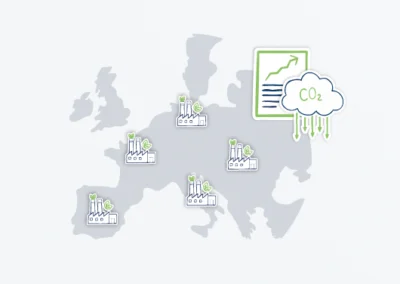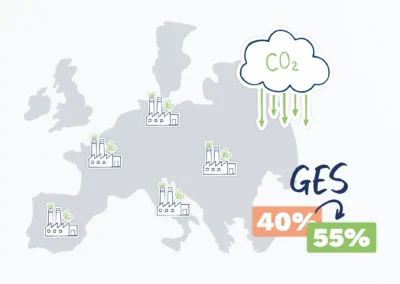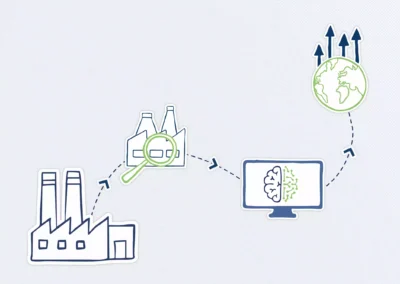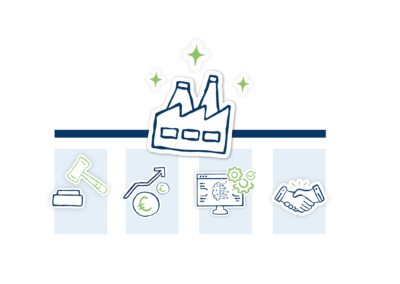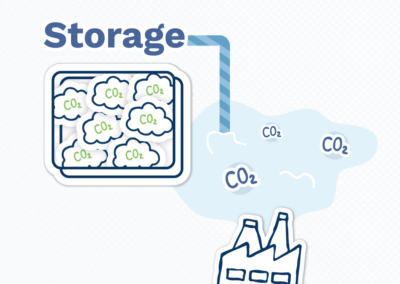
Carbon Neutrality by 2050: How Can Industries Achieve It?
Definition of Carbon Neutrality
The concept of carbon neutrality does not mean eliminating all greenhouse gas emissions. It consists of achieving a balance between greenhouse gas emissions and their absorption. Practically, this means that CO2 emissions must be minimized and offset by carbon sequestration or storage measures. The EU has set the goal of achieving carbon neutrality by 2050. Industries have a key role to play in meeting this challenge.
The manufacturing industries are responsible for a significant portion of greenhouse gas emissions, especially in the energy, manufacturing, transportation, and construction sectors. Transitioning to carbon neutrality therefore requires a profound transformation of economic models and industrial practices. The national low-carbon strategy (SNBC) serves as France’s roadmap for this transition.
I. The Stakes of Carbon Neutrality
Environmental Stakes
The transition to carbon neutrality is essential to limit the disastrous impacts of climate change (ice melting, rising sea levels, increased extreme weather events, loss of biodiversity, etc.). According to the Intergovernmental Panel on Climate Change (IPCC), it is imperative to limit global warming to 1.5°C above pre-industrial levels to avoid even more dramatic consequences.
Economic Stakes
Achieving carbon neutrality can also represent an economic opportunity: distinguish yourself from competitors by adopting eco-friendly production methods. Dametis can support you in this area.
Social Stakes
The transition to carbon neutrality must be fair and equitable for all of society, taking into account social justice and sustainable development issues.
II. Challenges for Industries
Reducing Greenhouse Gas Emissions
The primary challenge for industries is to reduce their carbon footprint, particularly CO2 emissions. For this, we can support industries in implementing several practices, such as:
- Establishing more efficient and less carbon-intensive production processes (using cleaner technologies and improving energy efficiency).
Note: According to the International Energy Agency (IEA), improving energy efficiency is the most cost-effective measure to reduce CO2 emissions in the industry.
- Using renewable energy sources (solar, wind, or hydro power) to reduce reliance on fossil fuels.
- Conducting an energy audit to identify CO2 emission sources and set reduction targets.
Reducing greenhouse gas emissions concerns not only large industrial companies but also SMEs and businesses of all sizes and sectors. Every company can contribute to the transition to a low-carbon economy by adopting more sustainable practices.
Improving Energy Efficiency
Improving energy efficiency is a key challenge for industries to achieve carbon neutrality by 2050. Reducing industrial energy consumption can drastically lower greenhouse gas emissions.
To improve their energy efficiency, companies can adopt various measures, such as:
- Implementing energy monitoring and control systems: These systems allow tracking of energy consumption and identification of waste sources. They help industries find optimization opportunities and take measures to reduce their energy use.
- Establishing more efficient production processes: For example, optimizing stock or waste management.
- Using more efficient technologies: This includes energy-saving production equipment or LED lighting.
- Training and raising awareness among employees about energy efficiency issues: This can lead to adopting more energy-saving behaviors.

As a center of excellence, Dametis Academy trains industrial professionals in best practices for environmental performance.
With rising energy costs and increasing ecological challenges, improving environmental performance is a key point for industry players.
Improving energy efficiency can also offer economic benefits for companies. By reducing energy consumption, industries save on energy bills and lower production costs. Additionally, investments in more efficient technologies can enhance long-term competitiveness.
III. How to Achieve Carbon Neutrality?
To achieve carbon neutrality by 2050, industries can adopt various solutions, including:
- Using renewable energy sources: Solar, wind, or hydro energy produce power without greenhouse gas emissions. Companies can invest in renewable energy production equipment or buy green electricity from renewable energy suppliers.
- Implementing carbon capture and storage systems: This reduces greenhouse gas emissions from heavy industries (chemical, steel, or cement industries). The solution involves capturing CO2 emitted during production, storing it in underground reservoirs, or using it to produce energy.
- Promoting the circular economy: This includes reducing waste and reusing resources as much as possible (recycling materials, reducing waste production, etc.).
- Optimizing supply chains: Companies can work with suppliers to reduce greenhouse gas emissions associated with raw material production. This can mean increased use of sustainable raw materials, more environmentally friendly agricultural practices, or reduced emissions from raw material transport.
- Adopting more sustainable work practices: Reducing business travel, telecommuting, or using remote communication technologies helps reduce greenhouse gas emissions related to business travel.
The transition to carbon neutrality cannot happen overnight; it requires a strong and sustained commitment from industries. Achieving carbon neutrality by 2050 is feasible through collective efforts to build a more environmentally friendly and sustainable future.
Dametis Supports the Manufacturing Industry Decarbonization !

IV. Carbon Neutrality: A Crucial Issue
At Dametis, we support industries in their environmental transition by offering solutions tailored to their specific needs and helping them implement sustainable practices. We believe that every company’s commitment to this transition is essential to achieve our common goal of carbon neutrality by 2050.
Contact us to discover how we can help you achieve your environmental goals and build a more sustainable future for all.









